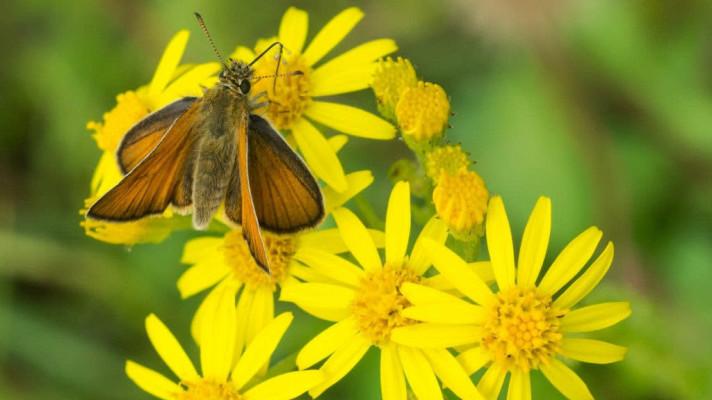EU plans to 'restore the balance' between people and nature
Crucial new plans for nature and farming were officially launched in Brussels today as EU leaders prepare to announce the biggest green investment package in history next week.
Long-awaited plans to boost biodiversity and set a new direction of travel for Europe's food and farming system were presented, including some impressive targets and significant funding for nature protection and restoration.
As the corona crisis continues, an increasing number of scientists are warning about the links betweenbiodiversity loss,habitat destruction,unsustainable agriculture and current and future threats to human health.
European Commission Vice President Frans Timmermans said: "The coronavirus crisis has shown how vulnerable we all are, and how important it is to restore the balance between human activity and nature."
The EU's biodiversity and 'Farm to Fork' strategies aim to halt the extraordinary loss of biodiversity currently occurring as a result of human activity.
The strategies were released on World Bee Day, and contain a target to halve the amount of pesticides sprayed onto European crops each year. The bee has become a symbol of the struggle for pollinators to survive the use of toxic chemicals by industrial agricultural.
Boost for biodiversity
The biodiversity strategy includes a number of commitments for the EU, such as increased resources for implementation and enforcement of the EU's flagship nature laws, supported by EUR20bn of nature protection and restoration funding every year.
It also seeks to protect 30% of all EU land and 30% of all EU seas by 2030, putting one-third of that under strict protection.
Learning from the failure of its previous voluntary targets, the Commission intends to propose new legislation to restore nature across the EU and has made a commitment to restore 25,000 km of free flowing rivers.
Sergiy Moroz, EEB Policy Manager for Biodiversity and Water welcomed the strategy: "The coronavirus has taught us how important it is to listen to scientists and heed their warnings and scientists have been warning about the threat posed by biodiversity loss to our own survival for decades."
Moroz pointed to the benefits of restoring and protecting nature, like climate and flood protection and defence against the emergence of new diseases.
He added: "It is good to see that the European Commission listened to the science in proposing those important commitments, it is now up to Member States to endorse them and have all hands on deck to tackle the biodiversity crisis we are facing."
Nature-friendly farming?
While the Farm to Fork strategy includes the target of halving pesticide use on European farms, cutting fertiliser use and curbing nitrogen pollution, it says little about the need to transform our diets to be healthier and more sustainable.
Celia Nyssens, EEB Policy Officer for Agriculture criticised the lack of " any serious attempt to improve the quality of European diets and end the overproduction and consumption of meat and dairy products."
Nyssens added: "If European governments really want to improve public health, helping farming produce and people consume food that is healthy and sustainable is a great place to start - in that sense, this strategy is a real missed opportunity."
The CAP
Nyssens pointed out that while the Farm to Fork strategy sets a "welcome direction of travel" for EU farming, the real "moment of truth" will come when the EU updates its EUR60bn-a-year Common Agricultural Policy.
Discussions about reforming the CAP have been taking place for years, with reforms proposed by the previous Commission falling far short of its environmental promises.
Campaigners and scientists agree that delivering on the environmental ambition of the Farm to Fork and Biodiversity Strategies will be impossible without a fundamental transformation of the CAP.
Warning: This is still just aspirational
Most of the commitments are aspirational and will need to be endorsed by the European Parliament and EU Member States.
Some commitments can only be achieved if they are delivered by existing legislation, like the Directive on Sustainable Use of Pesticides, others will need new legislation, including the new nature restoration law.
'Show us the money'
Another challenge will be finding the money to fund any changes.
Several commitments will need funding, including the ambitious targets for nature restoration, which may require up to EUR150bn up to 2030, from both public and private sources.
The Commission will make a major announcement about its Green Recovery package and plans for the EU budget on Wednesday 27 May, although an early leak of those plans suggest nature has been left out while agricultural grants may do more harm than good.
Want to learn more?
The EEB has produced a detailed analysis of both of the plans. Read more in our press release.
